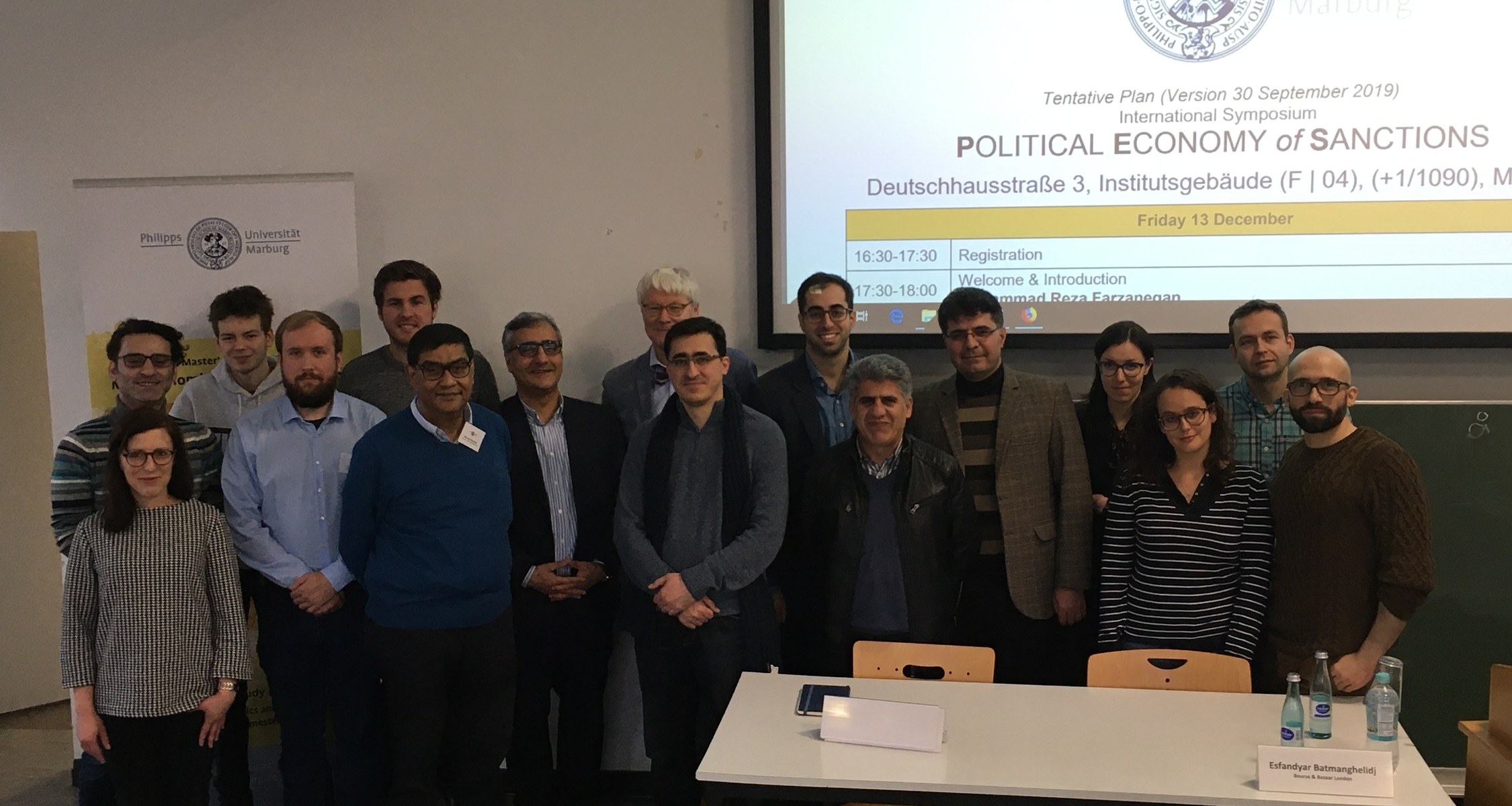Hauptinhalt
Symposium on the Political Economy of Sanctions

Political Economy of Sanctions (13.12.2019):
Prof. Mohammad Farzanegan (@MR_Farzanegan) presented a background on the event which was part of a research funded by Gerda Henkel Stiftung.
Keynote talk by Prof. Peter van Bergeijk (@issnl) on the success and failure of economic sanctions. It provided a powerful starting point for the symposium.
Political Economy of Sanctions (14.12.2019):
Esfandyar Batmanghelidj’s (@yarbatman) research and presentation put up more fascinating stylized facts regarding the industrial resiliency of Iran under the sanctions episodes.
A theoretical framework to understand how we can link the impact of import and export sanctions to the existent theories in international trade presented by Prof. Mansoob Murshed (@issnl). He presented a North-South trade model in the context of sanctions and discussed in the Symposium.
Maysam Behravesh (@MaysamBehravesh) examined the nexus between sanctions and quality of political institutions in Iran. His qualitative analysis refers to a negative link. Core argument is that the more critical foreign pressure increases, the greater repression the state applies in order to maintain control.
Assist. Prof. Sajjad Dizaji presented his empirical analysis of impact of oil sanctions on political institutions and military spending in the Middle East. Oil sanctions reduce military spending and quality of political institutions to sanction shocks was positive.
What would Iran’s military spending have looked like at the absence of international economic sanctions? Prof. Mohammad Farzanegan in his presentation and research addresses this question. Based on synthetic control analysis, in 2015, per capita military spending in the synthetic Iran is estimated to be about 69% higher than in the actual Iran.
Click on the picture on the top of this page to open the gallery with pictures of the event.
If you missed our event, you can find the list of speakers and presentations here: